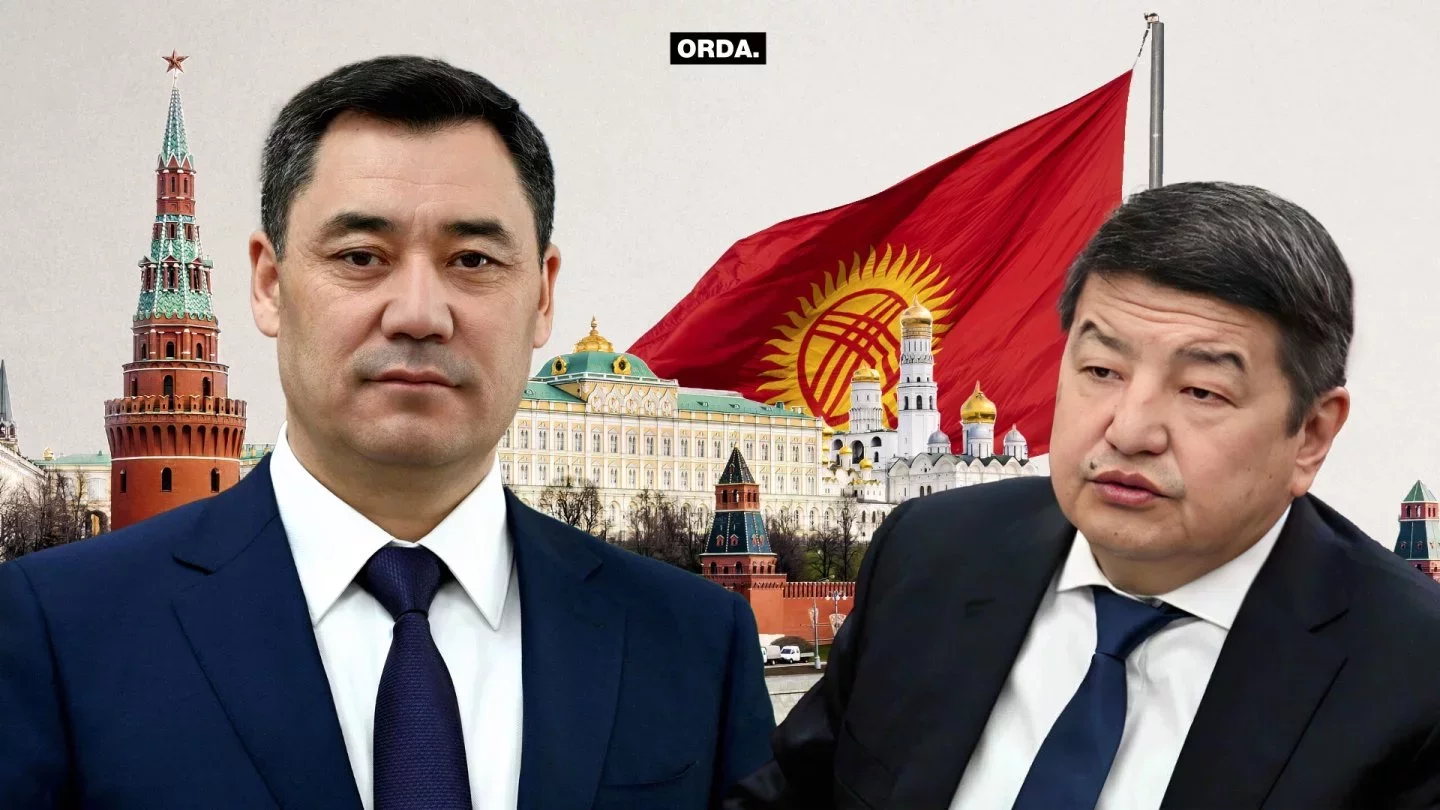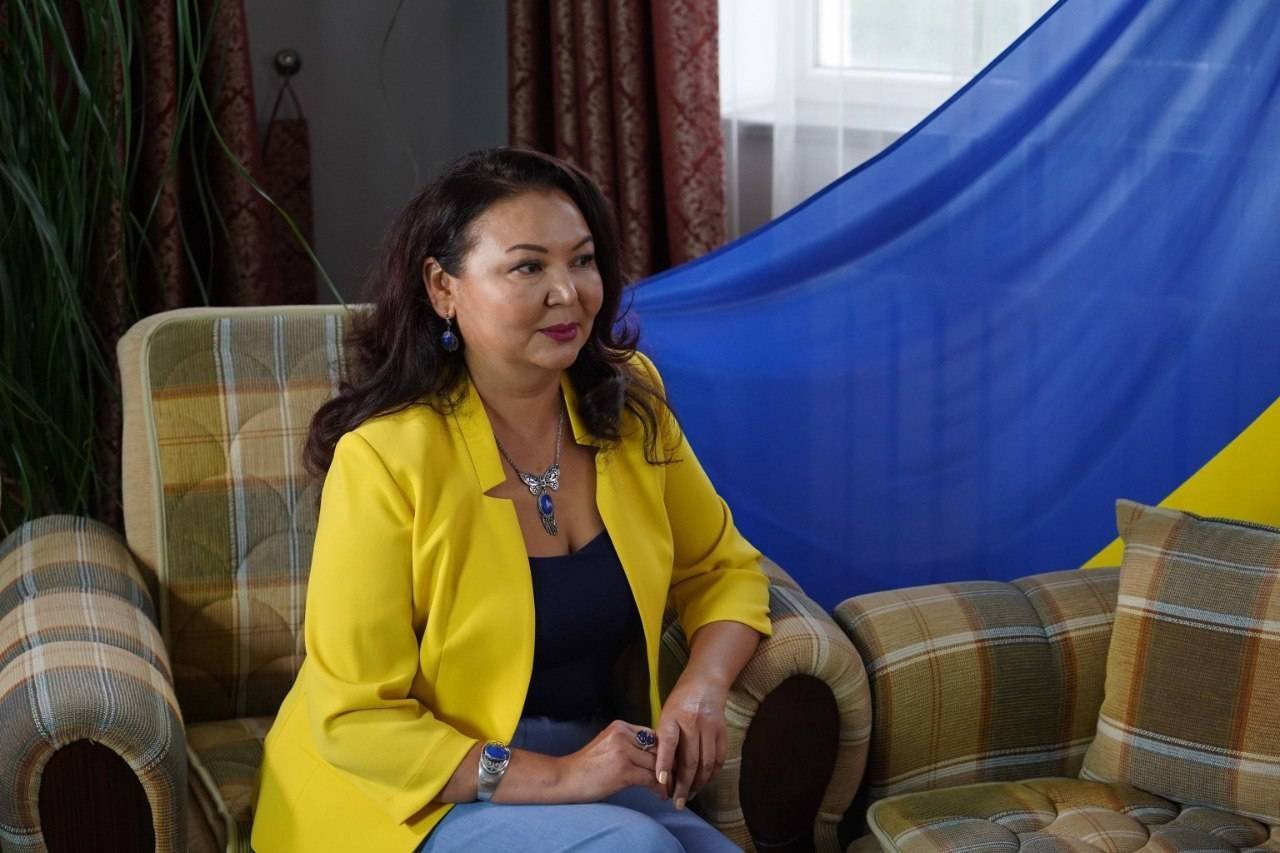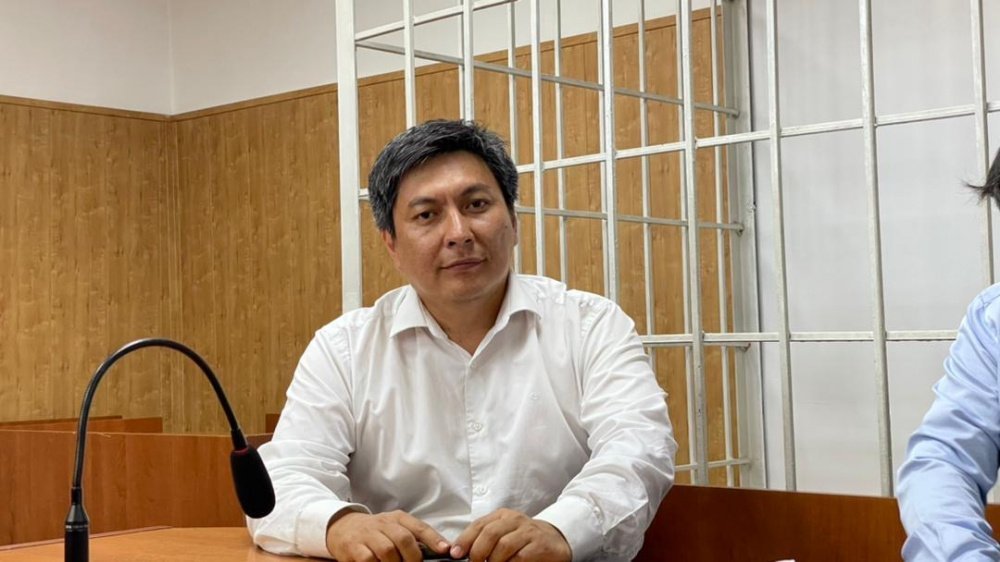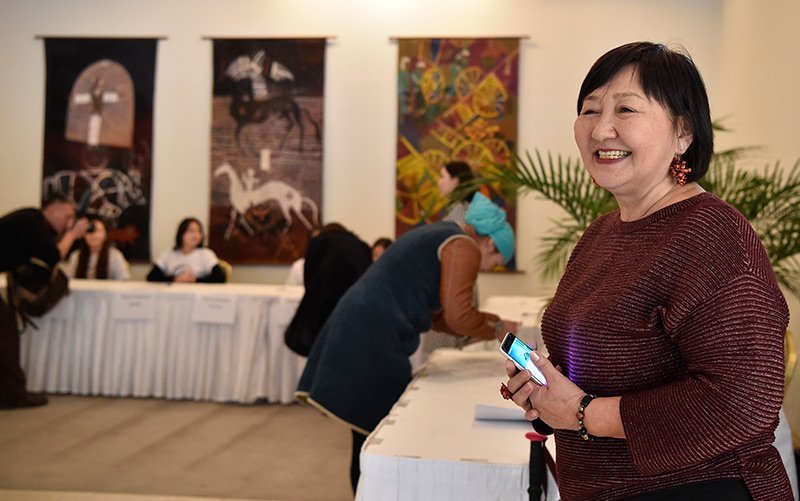Once An Island of Democracy: Kyrgyzstan Becoming Less Free

Kyrgyzstan has long been considered an island of democracy in Central Asia. Now the situation is changing rapidly. President Sadyr Zhaparov and his entourage have been clamping down on democratic institutions. Orda has spoken with experts from the country to learn about the situation.
Kyrgyzstan has been falling in the ratings of freedom of speech in recent years. In comparison with 2022, the country dropped 50 positions from 72 to 122. Incidentally, Kazakhstan also fell by 12 positions in the same ranking — from 122 to 134.
At the beginning of his presidency, President Sadyr Zhaparov said that he would not push out his political opponents or pressure the media. He was in the opposition for many years, persecuted by the authorities, and even imprisoned. The more he solidified his authority, however, the more pressure on independent public organizations and the media increased.
Leyla Saralayeva, editor-in-chief of the online publication New Faces, told Orda how it all started with bot attacks on the social networks of independent journalists and publications. Rallies also started to occur. Their participants criticized the press for promoting values alien to the Kyrgyz, including LGBTQ+.
At the same time, society itself has no such objections as such, it was all arranged by the president's supporters, the independent journalist says.

Another significant factor was the protests in Bishkek after the most recent Tajik-Kyrgyz border clash and the president's decision to give part of the country's territory to Uzbekistan. Zhaparov's ratings subsequently plummeted, whereas criticism increased.
Main Instrument of Repression
The authorities began to use the courts for repression. Journalists and activists once fought for their rights there. One of the most high-profile cases involved journalist Bolot Temirov. Temirov is considered one of the best corruption investigators in Central Asia.

Bolot Temirov had two passports — Kyrgyz and Russian, which is not prohibited. A court decided to deport him to Russia. He was also stripped of his Kyrgyz citizenship despite there being no such legal provision. The court verdict indicates that Temirov was found guilty of using a fake military ID and a fake temporary identity card when filing for a passport.
These legal claims surfaced after the publication of investigations into the Kyrgyzneftegaz company. The investigation revealed how relatives of the head of the State National Security Committee, Kamchibek Tashiyev, an ally of the president, work there.
Kyrgyz authorities have also tried their hand at closing the Kyrgyz branch of Radio Liberty — Azattyk, while targeting Kloop and Kaktus.media. After several trials, one of Kloop's legal entities "Kloop Media" was shuttered. Despite little hope for a positive outcome, they may appeal this decision. Azattyk continues to operate in Kyrgyzstan thanks to international organizations intervening.
In January 2024, journalists associated with Bolot Temirov were detained.
Detaining the 11 journalists is a blatant method of intimidation. There are young people there. These arrests demonstrate that young people should not go into journalism or investigative journalism, so as not to make any wrong moves and sit quietly, says Leyla Saralayeva.
24.kg, a popular media outlet, has begun to head to the authorities' whims. The judicial system in the country has never been distinguished by independence. It now implements new laws approved by deputies of the Jogorku Kenesh.
Kyrgyz human rights activist, director of the human rights organization "Bur Duino" Tolekan Izmailova, told Orda that over the years of independence, the courts, as in most other post-Soviet countries, have not become a separate and independent branch of government.
We don't have fair, independent justice yet. If there is no access to fair justice in the country, then impunity generates even greater crimes. Therefore, today illegal detentions, cruel treatment of detainees, lack of free access to consideration in courts of various levels are problems for us, the human rights activist says.
She says the law "On Foreign Representatives" approved by deputies is deplorable. It mirrors the Russian law on "Foreign Agents". This law creates red tape and additional reporting for those receiving financing from foreign sources.
Kremlin's Playbook
According to representatives of non-profit organizations, human rights defenders, and independent journalists, Russia facilitates the solidifying of the president's and his entourage's power in Kyrgyzstan. This is especially noticeable after the outbreak of the war in Ukraine. Moscow, Washington, and Europe have since been vying for influence in Central Asia.
The law on NGOs seems to have been copied from the Kremlin's playbook. Our deputies do not have a disdainful attitude towards NGOs in general, but very harsh propaganda is being carried out through pro-Kremlin media and Telegram channels. They write about independent journalists as if we are enemies of the people. The rhetoric is that they want to make a new revolution in Kyrgyzstan with Western money. The rhetoric is becoming more aggressive and unyielding every day. And the voice of independent media is getting quieter, says the editor-in-chief of New Faces, Leyla Saralayeva.
The situation in Kyrgyzstan is similar to Belarus after the 2020 elections and in Russia over the past few years. There are ever so few journalists openly criticizing the authorities. The law on NGOs may leave the country's public organizations without funding. Before Japarov signed the law, there had been hope he wouldn't.
We hope that he will veto this terrible draconian bill or withdraw it for revision. If Sadyr Japarov does not veto this law, then all three major development banks: The World, European, and Asian, may stop their programs in Kyrgyzstan, says human rights activist Tolekan Ismailova.

Kyrgyzstan greatly depends on both foreign investments and Russia. Almost a million Kyrgyz citizens work there. Unlike Bishkek's Western partners, Moscow also does not require serious reforms. However, xenophobic reactions after the Crocus Terrorist Attack may affect Kyrgyz migrant workers choosing Russia as a destination.
For his numerous election promises, Sadyr Japarov has long been called a populist by civil society. His words are at odds with legitimate solutions to people's problems, thus explaining Kyrgyz politicians' increasing efforts to bring traditional values to the forefront, as in Russia.
When there are no other ideas, there is no development of democracy, only traditional values come up, and they start talking about the epic of Manas and the like. Kyrgyzstan is deteriorating, and we are already under authoritarian rule. When degradation occurs, traditional values make a comeback, Saralaeva believes.
Another revolution could occur in Kyrgyzstan, considering the lack of real economic success. It could be no different than the previous ones. They demonstrated that despite the change of power, the state is no longer becoming systematic, while institutions: parliament, the executive branch, and the courts, are not functioning as they should.
Kyrgyzstan being a leader in the supply of sanctioned goods to Russia is also noteworthy. Moscow will be so keen on losing such a supplier.
I believe that Russia is planning to create a type of union state with Kyrgyzstan. Our pro-Kremlin political scientists are promoting it with might and main. They constantly say that democracy and independence have no special value. They are urging to expel NGOs from the country, to imprison some. We indeed have political repression, the journalist believes.
Original Author: Maxim Skopin
DISCLAIMER: This is a translated piece. The text has been modified, the content is the same. Please refer to the original piece in Russian for accuracy. The article has been updated to reflect the current situation. It was initially posted on 01/04/24.
Latest news
- Oil Smuggling Trial Begins in Aqtau Over Seized Tanker
- Armenian Foreign Ministry Open to Outsourcing Transport Corridor Oversight
- A Second Kazakhstan-Born Individual Convicted of Treason in Russia This Month
- National Fund Council: Toqayev Receives Tie-Breaking Vote Power
- Kazakhstani Caught With Fake Passport in Bulgaria Fears Extradition
- Rubio and Lavrov Hold Talks at ASEAN Summit Amid Escalation in Ukraine
- Asset Recovery: Price on De Beers Earrings Cut by 23 Million Tenge
- Pashinyan and Aliyev Discuss Normalization Efforts in Abu Dhabi
- What Will Be Considered Stalking? The Ministry of Justice Explains
- Kazakhstan Prepared to Build Karachaganak Gas Plant With Alternative Contractor if Needed
- Former Russian Orthodox Priest Launches Petition for Constantinople Church Presence in Kazakhstan
- Asset Recovery and Management Company Launches New Auction for Land in Nazarbayev’s Hometown
- Olzhas Bektenov Discusses Digital Innovation and Travel Safety with Yandex Qazaqstan
- Man Detained over Attempted Arson at House of Ministries Entrance
- Producer Says Zemfira Concert Canceled Due to Poor Planning
- Kazakhstan's Energy Minister Comments on Russia–China Gas Pipeline via Kazakhstan
- UN Working Group Says Gulnara Karimova Was Arbitrarily Detained, Uzbekistan Responds
- Perizat Kairat Claims Abuse in Detention
- U.S. Senate Considers Julie Stufft for Ambassador to Kazakhstan
- Leviathan vs. Orda: Gulnara Bazhkenova Speaks Out on Efforts to Seize Her Media and Threats to Her Life

